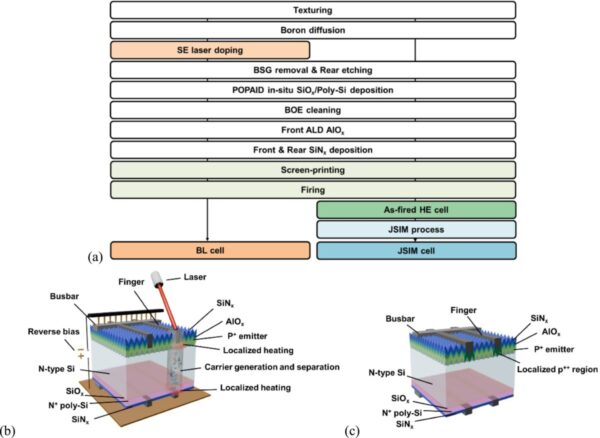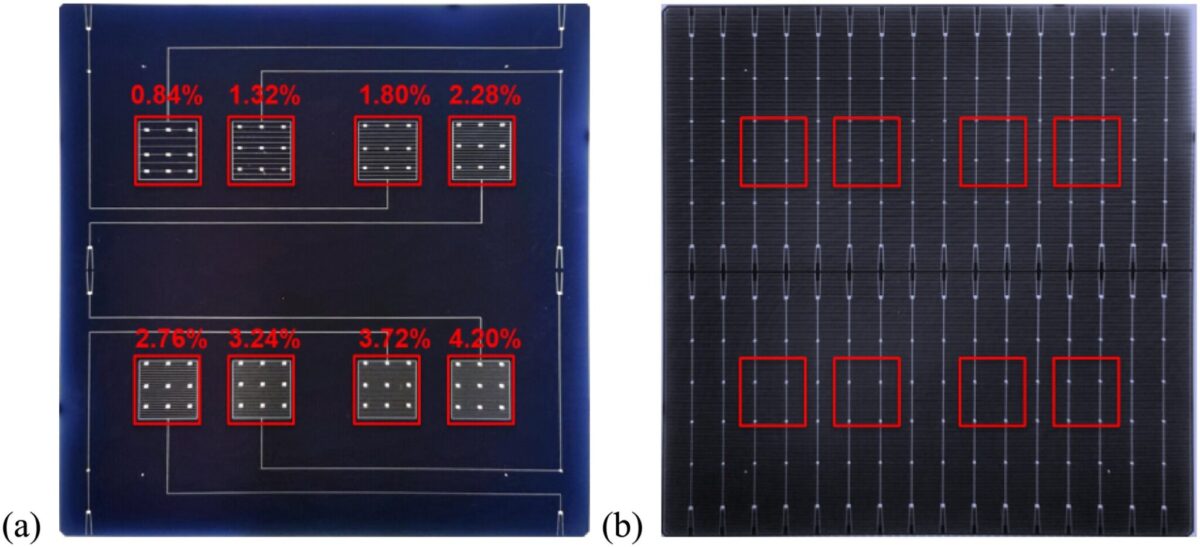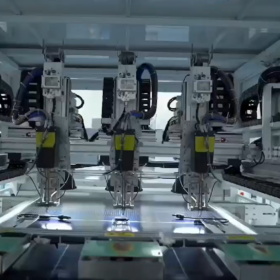Scientists from the University of New South Wales (UNSW) in Australia have investigated how effectively the laser-assisted firing process developed by Chinese solar module manufacturer Jolywood, the so-called Jolywood Special Injected Metallization (JSIM), enhances the efficiency of industrial-scale TOPCon solar cells by reducing Si-metal contact recombination and have found the manufacturing step can increase cell efficiency by approximately 0.6% absolute compared to the baseline single-step firing process.
“The results show JSIM is readily applicable in large-scale production lines, offering manufacturers a robust pathway to exceed 25% efficiency without significant additional costs or complexity,” the research’s corresponding author, Bram Hoex, told pv magazine. “This is particularly relevant for hot, humid climates, aiding industry in achieving bankable, high-efficiency modules.”
The researchers stressed that laser-assisted firing technologies such as JSIM and the so-called laser-enhanced contact optimization (LECO) developed by South Korea-based Qcells comprise an additional laser scanning process combined with an applied reverse bias, after an initial co-firing step. This step is reportedly able to increase the cell efficiency but also significantly improve the corrosion resistance of TOPCon solar cells
In their analysis, the academics compared the performance of JSIM with that of other baseline (BL) single-step co-firing processes. They utilized state-of-the-art cells from the high-volume production of undisclosed solar manufacturers, with the JSIM cells using a homogenous emitter (HE) structure and the BL cells featuring a selective emitter (SE).

Image: Image: UNSW, Progress in Photovoltaics, CC BY 4.0
This content is protected by copyright and may not be reused. If you want to cooperate with us and would like to reuse some of our content, please contact: editors@pv-magazine.com.









By submitting this form you agree to pv magazine using your data for the purposes of publishing your comment.
Your personal data will only be disclosed or otherwise transmitted to third parties for the purposes of spam filtering or if this is necessary for technical maintenance of the website. Any other transfer to third parties will not take place unless this is justified on the basis of applicable data protection regulations or if pv magazine is legally obliged to do so.
You may revoke this consent at any time with effect for the future, in which case your personal data will be deleted immediately. Otherwise, your data will be deleted if pv magazine has processed your request or the purpose of data storage is fulfilled.
Further information on data privacy can be found in our Data Protection Policy.